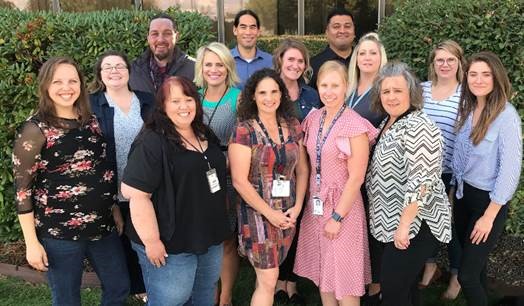Alternative Solutions for Child Support


Over the last decade, many states and tribal nations’ child support enforcement practices have evolved to maximize positive impacts on families. Gradually, a shift toward serving the whole family, not just those members receiving child support, is lessening the child support system’s reliance on more punitive enforcement measures. This evolution assumes a greater importance during the economic decline caused by the COVID-19 pandemic.
Even before the pandemic, the federal Office of Child Support Enforcement (OCSE) undertook significant work to reflect this perspective shift. In June 2011, OCSE presented evidence-based research that family-centered approaches improve the likelihood that families will receive consistent child support payments. Further guidance provided in 2018 encourages states to consider the use of federal incentive funds to integrate employment programs for noncustodial parents receiving child support services. Federal projects, including Procedural Justice-Informed Alternatives to Contempt and the Behavioral Interventions for Child Support Services project reflect this change, as do groundbreaking state programs nationwide.
In Washington State, this shift resulted in significant changes in policies and practices at the Department of Social and Health Services’ Division of Child Support (DCS). In 2014, the agency created an internal program called Alternative Solutions, pioneering a new approach.
The program now has a team of 13 staff members who receive additional training to help noncustodial parents encountering barriers to paying their child support. Program staff members are positioned statewide to work with parents in person and use their databases of resources to assist parents in need remotely. Since its inception, Alternative Solutions embraces innovative approaches to working with parents who struggle to meet their child support obligation, and they have shown measurable results. A deeper look at Alternative Solutions’ practices during the pandemic reveals potential lessons for child support professionals nationwide.
What Does Alternative Solutions Do Differently?
 While some child support enforcement approaches focus on penalties for failure to pay support orders, Alternative Solutions program specialists start by asking questions. This reflects the agency’s philosophy of prioritizing consistent payments over a longer timeframe, rather than “over-enforcing” untenably high child support orders. The Alternative Solutions team focuses on building trust, helping parents develop their own plan to remove barriers to economic stability, and providing encouragement. This approach has been shown to create consistent support payments, which in turn benefit the whole family.
While some child support enforcement approaches focus on penalties for failure to pay support orders, Alternative Solutions program specialists start by asking questions. This reflects the agency’s philosophy of prioritizing consistent payments over a longer timeframe, rather than “over-enforcing” untenably high child support orders. The Alternative Solutions team focuses on building trust, helping parents develop their own plan to remove barriers to economic stability, and providing encouragement. This approach has been shown to create consistent support payments, which in turn benefit the whole family.
Alterative Solutions staff members start with the basics:
- What barriers might be preventing parents from meeting their child support obligation?
- What are the parents' goals and how can Alternative Solutions connect parents to resources within their community to achieve those goals?
The team works with parents to create an Individualized Solutions Plan to address any barriers they face that prevent them from paying child support. Staff members have reduced caseloads, offering more time to help explain child support processes to parents. The goal is to encourage parents to make decisions that will positively affect their lives. After parents reach their goals, ideally, they will continue to meet their obligations, improving the lives of their families as well as the performance metrics of DCS.
Partnerships with nonprofit and governmental agencies outside of DCS play a pivotal role in Alternative Solutions’ success. In two Washington counties (Spokane and Franklin), a program specialist works with the prosecuting attorney’s family support unit, collaborating on cases that are currently involved in the civil contempt process for ongoing failure to meet child support obligations. Program specialists periodically attend court hearings and speak with parents who may benefit from participating in the program.
Alternative Solutions staff members meet regularly with community action councils, homeless coalitions, and reentry groups to sustain up-to-date knowledge of resources to which they can refer parents. Every resource is meticulously recorded in a database accessible to all DCS staff members. An online version of the database is also available to the public.
Consistent and collaborative communication is essential in engaging parents and their success in the program. Many program participants are experiencing homelessness and may have a limited ability to communicate by conventional means. Alternative Solutions staff members try every available avenue to reach out to parents and actively engage with them. They use a mix of face-to-face meetings, texts, email, and phone to communicate, depending on participants’ individual needs and preferences. Staff regularly attend community resource events as well, to enhance community partnerships and make their services accessible to a wider range of potential participants. As an example of ensuring continuity of services and providing accessibility, program staff members, working with the Department of Corrections, are now meeting virtually with parents in correctional facilities because they can no longer attend in person due to the COVID-19 pandemic.
How Does the Alternative Solutions Program Prepare Staff Members to Work Differently?
In Washington State, new Child Support Enforcement Officers receive training at a child support academy focused on DCS policies and procedures. Alternative Solutions supplements this traditional child support training with additional curriculum focused on recognizing parents’ unique circumstances. These measures include:
- Training:
- Trauma-informed case management—Integrates knowledge and understanding of trauma and recovery into everyday practice.
- Motivational interviewing—A directed communication style that elicits behavioral changes by helping the individual to explore and resolve ambivalence.
- Family-centered coaching—Helps staff members work with families holistically toward achieving their goals.
- This specialized training for new program staff members is reinforced through observation and coaching by experienced staff members.
- Through the strategic planning process, Alternative Solutions continually updates its best practices to strengthen relationships with parents, partners, and stakeholders.
How to Sustain Connections Without the “Water Cooler”
Because program staff are located all across the state, Alternative Solutions places a strong focus on creating an environment of collaboration, support, and encouragement. Team members build up supportive bonds through intentional communication, such as a simple, daily 15-minute huddle and biweekly meetings that strengthen the level of trust in the group. Staff members across the state share firsthand experiences and specific regional resources.
“It has been an honor to witness the innovative ways this team finds to encourage and support one another! On those rare occasions that we are able to all be together, the unity of the team is evident,” says Alternative Solutions supervisor Ashley Joslyn.
During this unprecedented time, the team has explored several new ways to promote self-care and foster connections within the team. “Walking Wednesdays” encourage everyone to participate by cell phone while masking up and enjoying the fresh air. On Thursdays, the new “10 Minutes for Me” meeting is an opportunity for each team member to take a moment to share a self-care method with colleagues. These mindfulness meditations, breathing exercises—and even "Mad Libs"—help relieve the stress of their intense work. All team members take responsibility for these check-ins on a rotation, so everyone gets a chance to improve their facilitation skills. Teamwide issues, proposed changes, and processes all get a place on the agenda, and staff are encouraged to bring them forward to DCS leadership when necessary. These practices might appear frivolous at first glance, but Alternative Solutions staff members have long understood they are vital to their work.
“Relationships and shared purpose are key to building resilience needed to handle the stress and secondary trauma this job may induce,” notes Joslyn. Sharing information, they say, makes them feel less isolated, safer, more confident, and better connected to one another. These relationships nurture creative solutions to child support problems and bolster the team’s ability to handle a wide range of parents’ circumstances.
Conclusion
Designed for work across the entire state, Alternative Solutions sustains its engagement with nonresident parents during the pandemic and ensuing shutdown. The program continues to grow and increase its influence on the culture of the agency by training other DCS child support officers as liaisons in field offices who then share community resources with local staff members. The initial, pre-pandemic training as program specialists, strong engagement practices with parents, and focus on team building allows Alternative Solutions staff members to work together cohesively toward their collective goals despite some unique challenges.
As the Grants Project Manager, Jorji Knickrehm was responsible for managing Families Forward Washington and other grant and special projects for the Washington State Division of Child Support. Kyla Wasserman is an MDRC research associate working in youth development, criminal justice, and employment issues.
About InPractice
The Alternative Solutions team focuses on building trust, helping parents develop their own plan to remove barriers to economic stability, and providing encouragement.





